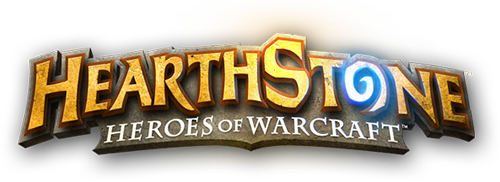HCT Spring Championship Preview
Posted on 28 June 2017
The 2017 Hearthstone Championship Tour (HCT) is set to identify the next four competitors headed to the Hearthstone World Championship beginning Friday, July 7 in Shanghai. You can catch all of the Spring Championship action live over on the official Hearthstone Twitch channel, but here’s a glimpse of what you can expect during the tournament.
The Tournament
HCT continues to use the Conquest format for tournaments. The Spring season updated the rules from HCT Winter—moving to best-of-five matches with one ban—so each player must bring four different classes total.
Initially, four players—one from every region—are seeded into four groups. After the dual tournament group stage concludes, the top two players from each advance to the single elimination playoff bracket.
In addition to their share of the $250,000 prize pool, four spots at the Hearthstone World Championship are on the line – so all four semifinalists, regardless of their home region, will qualify to the World Championship.
The Players
All 16 players in attendance represent some of the best Hearthstone competitors in the world. Yvehenni ‘Neirea’ Shumilin and XHope are making repeat appearances from the Winter Championship, and Neirea is joined by fellow previous Hearthstone World Championship attendees Jason ‘JasonZhou’ Zhou, Aleksandr ‘Kolento’ Malsh, and Jun Hak ‘Kranich’ Park. Neirea will show up with purpose, as he lost the best-of-seven quarterfinal against eventual finalist Frank ‘Fr0zen’ Zhang in the seventh game at the Winter Championship – one game shy of securing his berth at the World Championship.
Europe’s showing for the Spring season is comprised of a sea of noteworthy, established veterans, but for several of these players the Spring Championship is a breakout opportunity. While expectations will once again ride high that Europe’s top tier talent, who have fought through a highly competitive HCT region, are strong favorites, placing highly on the Legend leaderboard is enormously difficult in China, and Americas players were the most successful in the Winter Championship.
Players:
Hoej
Neirea
Rdu
Kolento
Mage
Tredsred
CitizenNappa
Kranich
Muzzy
Kuonet
DiegoDias
Ant
OMJasonZhou
OMXhope
ahqDogggg
Trunks
Hoej
Paladin
Warrior
Rogue
Shaman
Back to the top
Neirea
Mage
Druid
Rogue
Warrior
Back to the top
Rdu
Druid
Mage
Warrior
Shaman
Back to the top
Kolento
Druid
Rogue
Warrior
Shaman
Back to the top
Mage
Paladin
Mage
Rogue
Shaman
Back to the top
Tredsred
Paladin
Warrior
Rogue
Mage
Back to the top
CitizenNappa
Druid
Warrior
Rogue
Shaman
Back to the top
Kranich
Druid
Paladin
Rogue
Mage
Back to the top
Muzzy
Mage
Druid
Paladin
Shaman
Back to the top
Kuonet
Mage
Paladin
Druid
Warrior
Back to the top
DiegoDias
Paladin
Druid
Rogue
Warrior
Back to the top
Ant
Druid
Warrior
Mage
Shaman
Back to the top
OMJasonZhou
Paladin
Druid
Rogue
Shaman
Back to the top
OMXhope
Druid
Priest
Warrior
Shaman
Back to the top
ahqDogggg
Druid
Paladin
Rogue
Mage
Back to the top
Trunks
Mage
Druid
Paladin
Rogue
Back to the top
The Decks
With all the deck lists locked in, here are some exciting trends and noteworthy decks you can keep an eye on in the Spring Championship. You can also copy these deck lists to play for yourself with the new Deck Importing feature!
Spectators will no doubt be interested to see how Quest Rogue performs considering the announcement that The Caverns Below is receiving a balance change in an upcoming patch. Rogue was the second most popular class behind Druid across the tournament lineup, but Quest Rogue is far and away the most common deck – and the only style of Rogue being played in the Spring Championship.
Quest Rogue was least popular with Americas players, but every Asia-Pacific competitor has it in their lineup. Each region had one class that was brought with 100% consistency—Druid for the Americas and China, Warrior for Europe, and Rogue for Asia-Pacific—but the other regions are bringing multiple Druid and Warrior archetypes.
Five of the Quest Rogue lists are an identical core list, while the remaining six trade cards like Swashburglar or Backstab for more aggressive Stonetusk Boars or tech choices like Hungry Crabs, Tar Creepers, or a Golakka Crawler, hoping to target specific aggressive decks. Other tech choices that were popular in this tournament include Spellbreaker in Pirate Warrior or Gluttonous Ooze in Jade Druid and Burn Mage. Some highly-specialized techs make the occasional appearance – like the two players running Eater of Secrets to target Ice Block.
A total of approximately 13 different styles of deck are in play, representing seven of the nine Hearthstone classes. Only one player, xHope, is bringing Priest, and the only other truly unique decklist is JasonZhou’s Jade Shaman with Spirit Echo.
Some regional tendencies exist – Americas players have broadly opted to play for the late game, bringing Jade Druid, Quest Warrior, and two of the three Control Paladin lists in the tournament. Asia-Pacific favors a more aggressive style, bringing more Token lists than other regions and being the only region to field no Jade Druid whatsoever. Pirate Warrior has fallen out of favor in China, as well.
Overall, no single archetype other than Quest Rogue was brought by more than half of the players in this tournament. The most common after Quest Rogue was Token Shaman, with eight players choosing it. Several players brought similar lineups by class, but no two players brought the same lineup by archetypes.
Look for control players to ban Jade Druid or Quest Rogue to protect their best matchups. Aggressive players will try and eliminate the decks that outlast them, like Control Paladin or Quest Warrior, where they exist; otherwise they’ll ban decks that can outrace them, like Token decks.
For additional information about the Spring Championship, including broadcast times, casters, and more, check out our guide on how to Watch the Spring Championship.
Who did you vote for in Choose Your Champion? What deck list are you going to experiment with using Deck Importing? Let us know in the comments!
